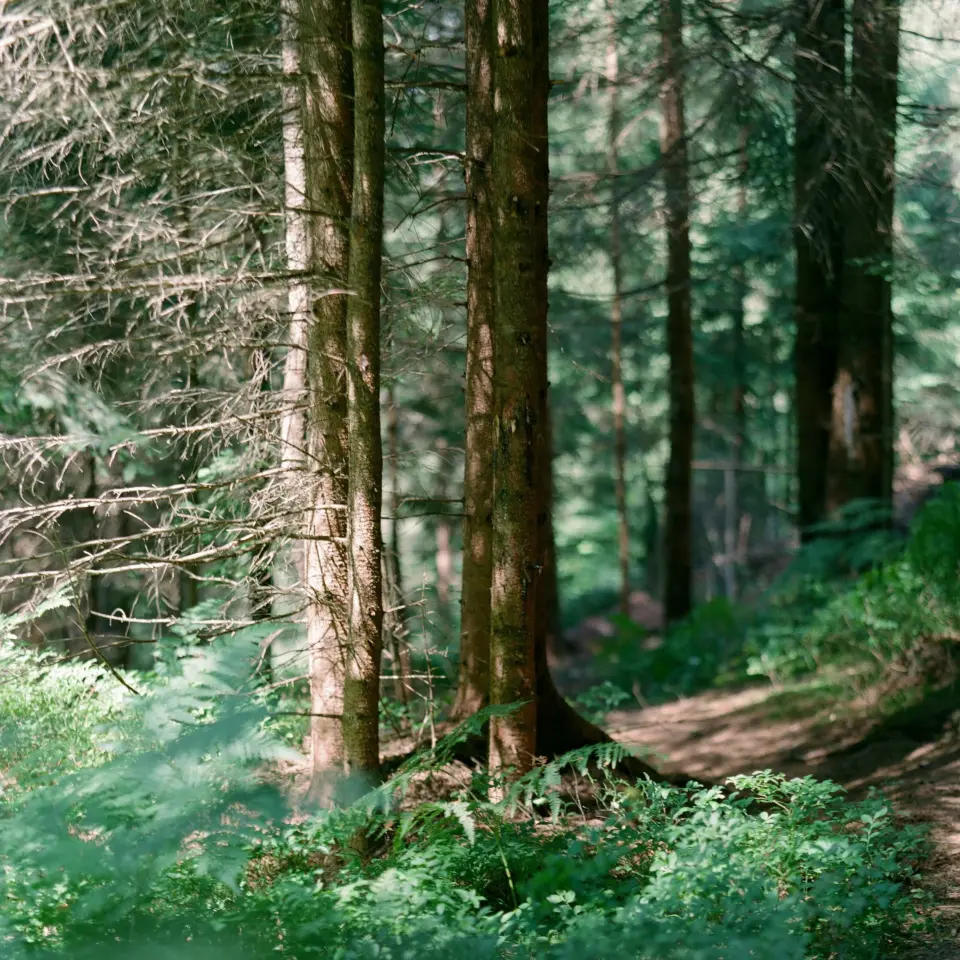
Climate protection projects
Deutschland Plus
Find out how regional climate protection projects in Germany bind CO₂ through our work.
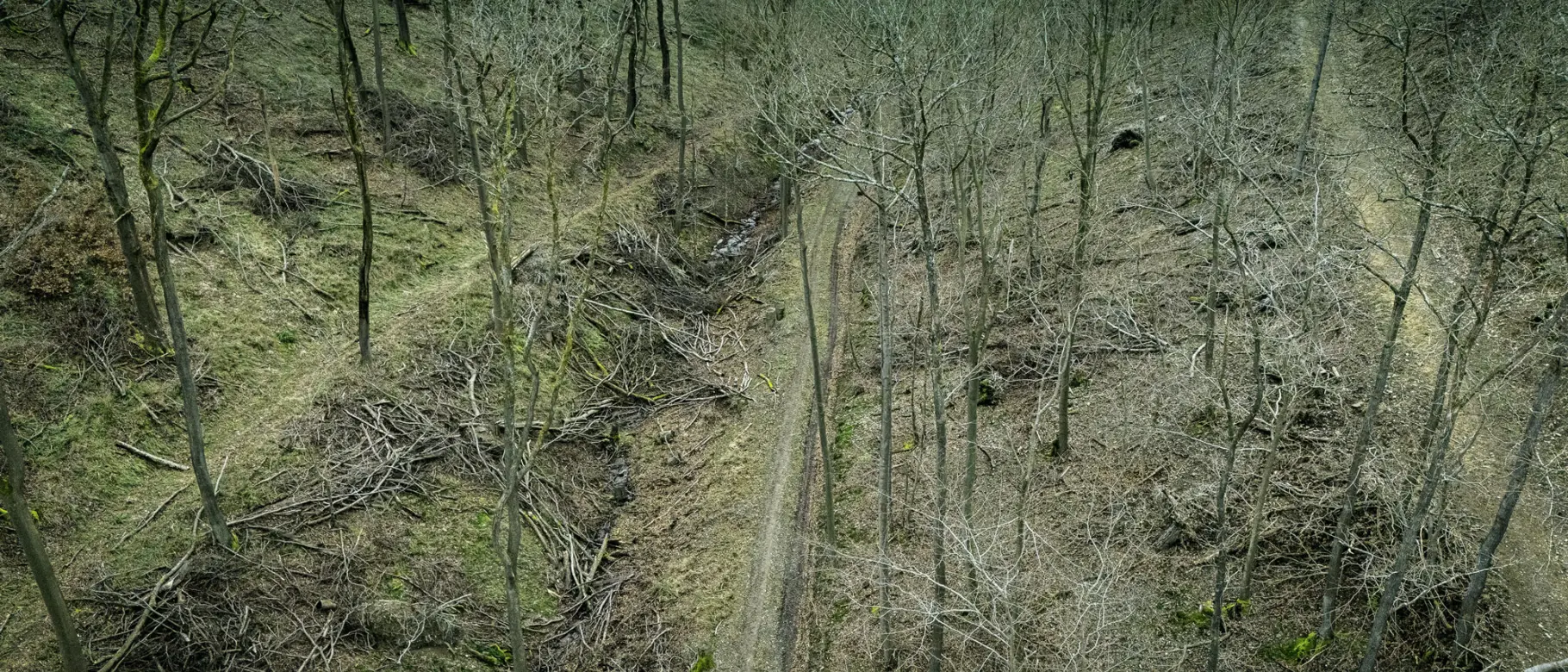
A powerful winter storm left visible traces in the Buchenberggraben, a small valley in Schalkenbach in Rhineland-Palatinate. In the winter of 2023/24, numerous old beech and oak trees were uprooted over a distance of 100 meters - some of them over 200 years old. The ground was sodden and the wind was strong - an unfavorable combination for deeply rooted trees on steep slopes. What remained was an open landscape: the stream, which previously flowed through dense forest, is now exposed. The adjacent slopes are bare. But what looks like damage is also an opportunity.
It quickly became clear to the responsible forestry office that there would be no damage here, but rather a new habitat. The resulting open space is to be used to enhance the forest ecologically and make it more resistant to climate change in the long term. To achieve this, the foresters are relying on targeted planting and natural regeneration - with tree species that are suitable for the location and at the same time increase biodiversity.
Alders are planted along the course of the stream. They stabilize the banks, provide shade and create space for typical stream-side vegetation - i.e. plants that occur naturally in such wetlands. On the slopes, the vegetation will be more varied: here, we plan to plant fluttering elms, sycamores, bird cherries and wild fruit such as wild apple and wild pear. These species are robust, ecologically valuable and provide food and habitat for many insects and birds.
The Buchenberggraben is not just any piece of forest. The area is part of the European Natura 2000 network of protected areas "Juniper Heaths of the Eastern Eifel". The aim of these protected areas is to preserve particularly valuable habitats and species in the long term. In this case, it was a so-called Hainsimsen beech forest - a sparse, species-poor but very typical beech forest on nutrient-poor soil.
Some of the old beech trees survived the storm. To give their descendants a chance, the foresters rely on natural regeneration. To this end, so-called "horde fences" are erected - robust wooden structures that prevent wild animals from immediately biting the young shoots. In this way, a new, healthy forest can grow from the genetic heritage of the old trees.
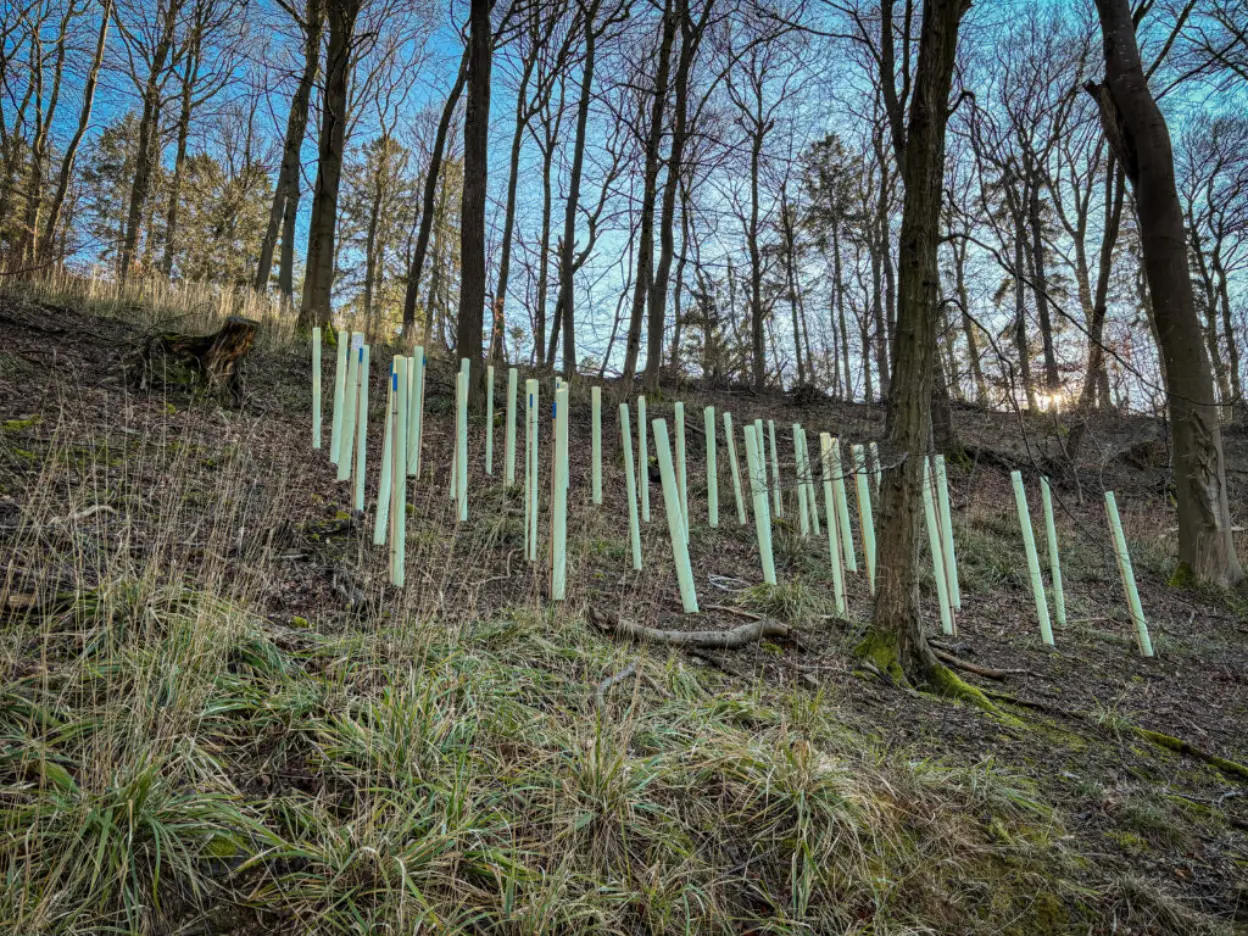
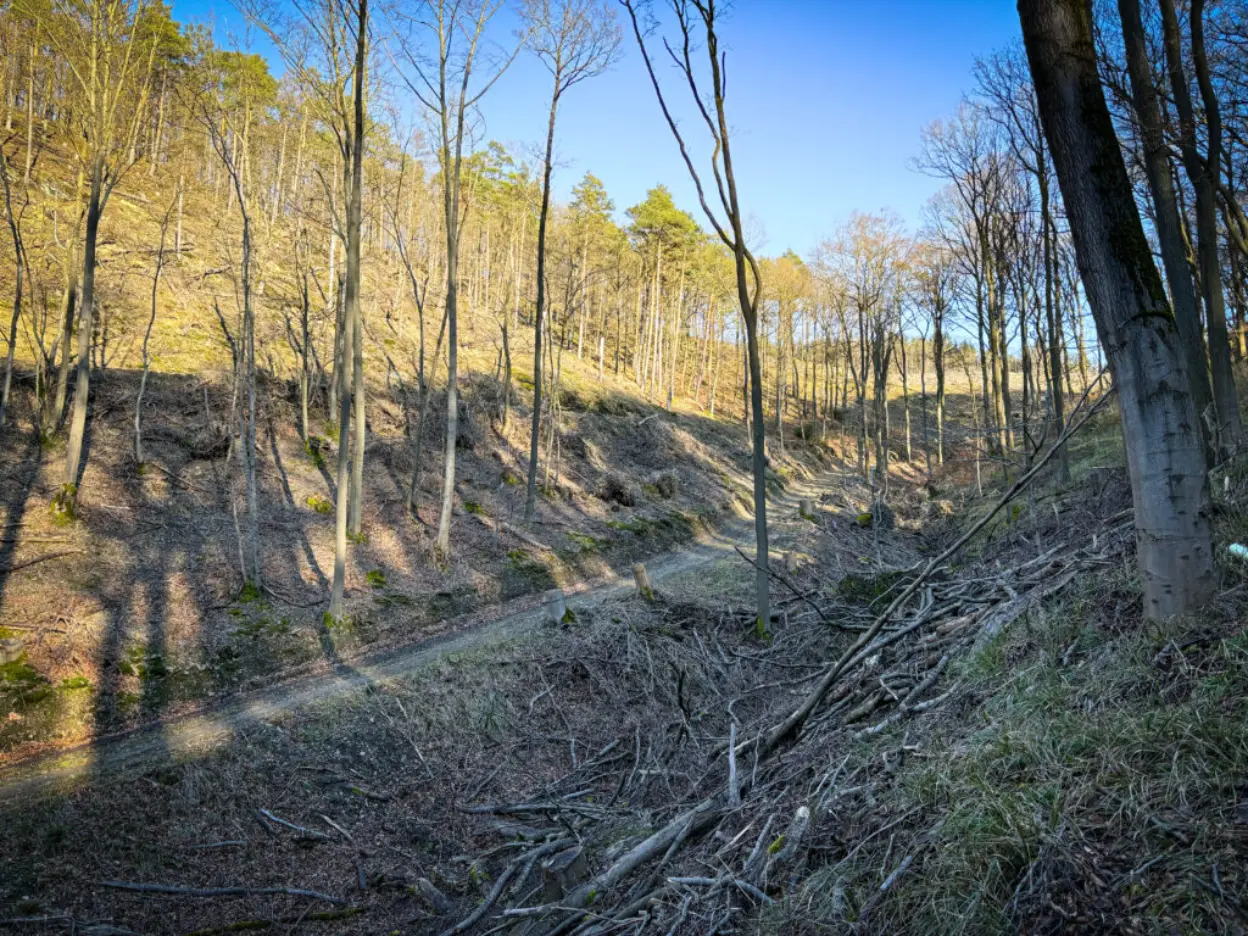
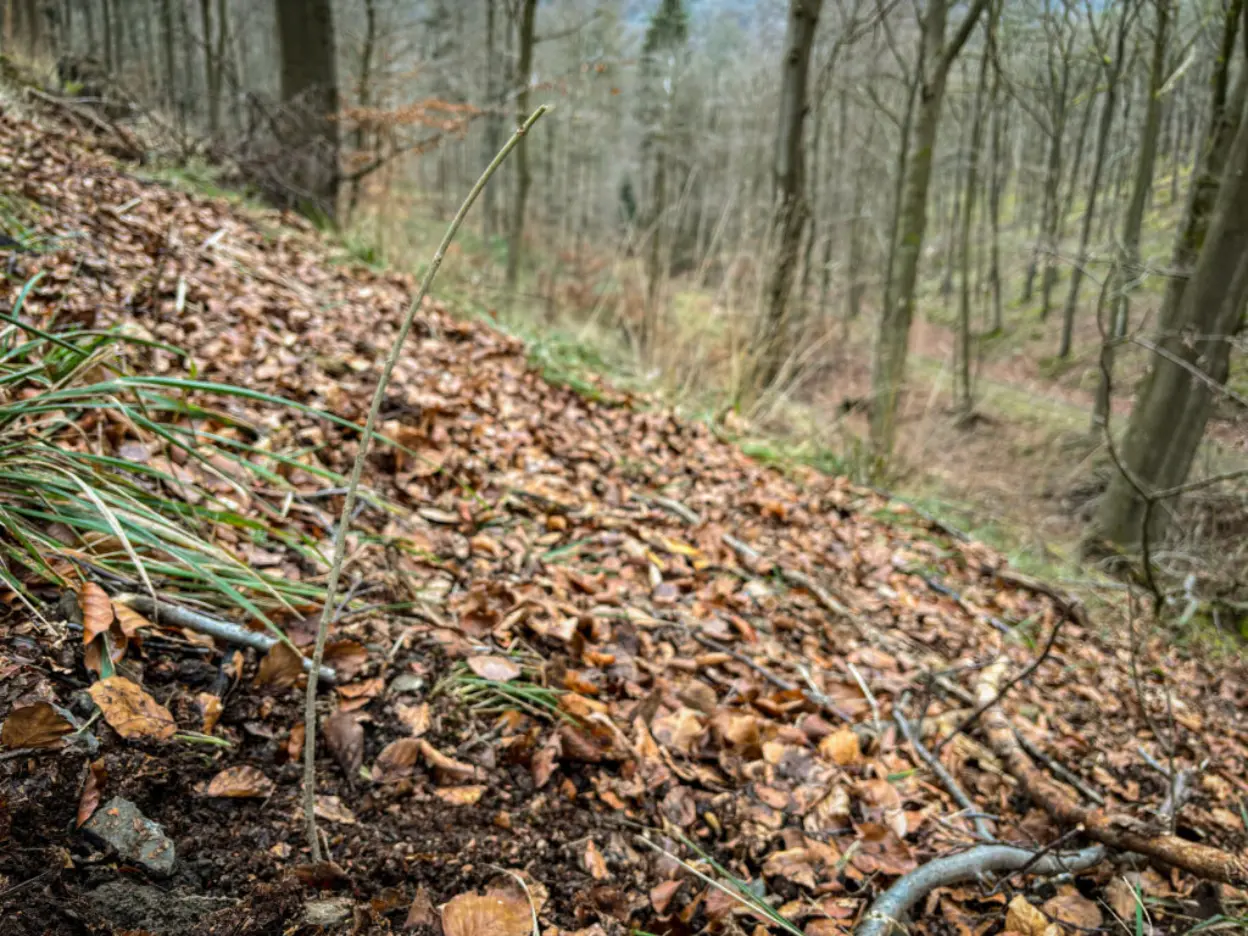
Such projects not only require commitment and expertise - they also need funding. This is exactly where DeutschlandPlus comes in: a climate protection offer from natureOffice that gives companies the opportunity to combine voluntary CO₂ offsetting with a targeted, regional impact.
By supporting companies that opt for DeutschlandPlus, projects such as the forest conversion in the Buchenberggraben can be realized in the first place. The funding makes it possible for regional forestry offices to implement their ideas for climate-resilient forests - without failing due to bureaucratic or financial hurdles.
Climate change poses major challenges for our forests: longer dry periods, stronger storms, new pests. Pure beech or spruce stands, which are still typical in many regions, often react very sensitively to this. Mixed forests with diverse tree species are much more robust. They withstand wind better, store more water and provide a home for a greater number of animal and plant species.
This is exactly what is to be created in the Buchenberggraben: a stable, species-rich forest that will continue to function in the future - ecologically, climatically and as a place of recreation for people.